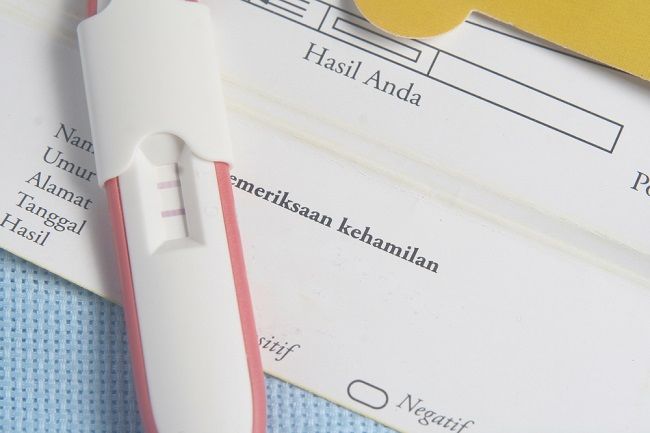Enalapril is a drug used to lower blood pressure in hypertensive conditions. This medicine can also be used with other medicines to treat heart failure.
Enalapril belongs to the class of drugs ACE inhibitor. This medicine will help relax or relax the muscles of the blood vessels. This way of working will help dilate blood vessels, lower pressure, and improve blood flow, thereby easing the work of the heart.

Enalapril trademark: Tenace, Tenaten, Tenazide
What is Enalapril
| group | Prescription drugs |
| Category | ACE inhibitor |
| Benefit | Treating hypertension and heart failure |
| Consumed by | Adults and children |
| Enalapril for pregnant and lactating women | Category D:There is positive evidence of risks to the human fetus, but the benefits may outweigh the risks, for example in dealing with life-threatening situations. Enalapril may be absorbed into breast milk. If you are breastfeeding, do not use this medicine without telling your doctor. |
| Drug form | Tablet |
Precautions Before Taking Enalapril
Before taking this drug, you need to pay attention to the following:
- Tell your doctor about any allergies you have. Enalapril should not be given to patients who are allergic to this drug or to drugs of the class ACE inhibitor other.
- Tell your doctor if you have or have recently had angioedema. Enalapril should not be used by patients with these conditions.
- Tell your doctor if you have or have had heart disease, kidney disease, liver disease, lupus, bone marrow disorders, diabetes, scleroderma, or electrolyte disorders, including high levels of potassium in the blood (hyperkalemia).
- Do not drive a vehicle or perform activities that require alertness while taking enalapril, as this medicine can cause dizziness.
- Tell your doctor if you are taking enalapril before having surgery, including dental surgery.
- Tell your doctor if you are taking any medications, herbal products, or supplements, including potassium supplements.
- Tell your doctor if you are pregnant, breastfeeding, or planning a pregnancy. Use effective contraception while on treatment with enalapril.
- See your doctor right away if you have an allergic drug reaction, serious side effect, or overdose after taking enalapril.
Dosage and Instructions for Use Enalapril
The following are general doses of enalapril based on the patient's condition and age:
Condition: Hypertension
- Mature: 5 mg, 1 time a day. Maintenance dose 10–20 mg once daily. The dose can be increased to 40 mg.
- Children weighing 20– <50 kg:2.5 mg, once a day. The dose can be increased to a maximum of 20 mg per day.
- Children weighing 50 kg:5 mg, 1 time a day. The dose can be increased to a maximum of 40 mg per day.
- seniors: 2.5 mg, once a day. The dose is then adjusted based on the response to the drug.
Condition: Heart failure
- Mature: 2.5 mg, once a day. The dose can be increased gradually up to 20 mg. The maximum dose is 40 mg per day in 2 divided doses.
- seniors: 2.5 mg, once a day. The dose is then adjusted based on the response to the drug.
How to Take Enalapril Correctly
Follow the doctor's recommendations and read the information listed on the drug packaging before taking enalapril. Do not reduce or increase the dose without consulting your doctor first.
Enalapril can be taken before or after meals. Try to take enalapril at the same time every day for maximum treatment.
Keep taking this medicine even if you feel well. Do not stop taking this medication without consulting your doctor.
If you forget to take enalapril, it is advisable to take it immediately if the gap between the next consumption schedule is not too close. If it is close, ignore it and do not double the dose.
While you are taking enalapril, your doctor may ask you to have regular kidney function, electrolyte levels, or blood tests to monitor your body's response to the drug.
The use of enalapril should be accompanied by the adoption of a healthy lifestyle, such as a low-salt and low-fat diet, exercising regularly for at least 30 minutes every day, and not smoking or consuming alcohol.
Store enalapril in a dry place away from direct sunlight. Keep this medicine out of reach of children.
Enalapril Interactions with Other Drugs
The following are some of the effects of drug interactions that can occur when enalapril is used with other drugs:
- Increased risk of hypotension, hyperkalemia, and breakdown or ARB class drugs, such as candesartan
- Increased risk of angioedema when used with sacubitril or allopurinol
- Increased risk of hypoglycaemia when used with metformin or insulin drugs
- Increased risk of developing hyperkalemia when used with potassium-sparing diuretics or potassium supplements
- Increased levels and possible toxic effects of lithium
- Increased risk of kidney damage if used with nonsteroidal anti-inflammatory drugs (NSAIDs)
- Increased risk of a nitritoid reaction which can be characterized by facial flushing, nausea, vomiting, and low blood pressure if used with gold-based drugs, such as sodium aurothiomalate
Enalapril Side Effects and Dangers
Some of the side effects that can occur after taking enalapril are:
- dry cough
- Dizziness or feeling floating
- Unusual tired
- Constipation or diarrhea
Consult a doctor if the side effects above do not subside immediately or are actually getting worse. You need to see a doctor immediately if you experience an allergic drug reaction or more serious side effects, such as:
- The body feels weak, floats, and feels like passing out
- Swelling of the face, lips, tongue, throat, feet, hands, or eyes
- Irregular heartbeat, slow heart rate, or palpitations
- Infrequent urination or very little urine
- Jaundice, dark urine, severe stomach pain, or loss of appetite
- Infectious disease that can be characterized by symptoms such as fever, chills, or sore throat









